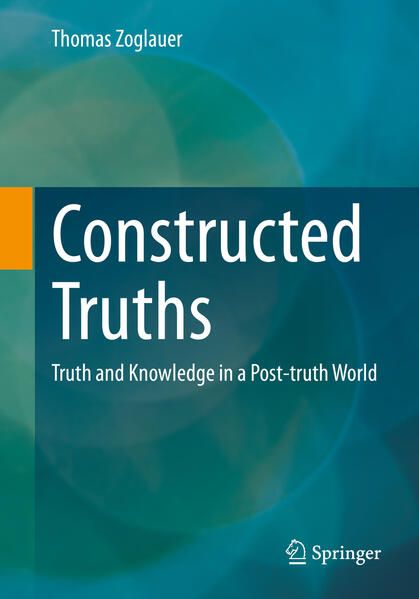Constructed Truths Truth and Knowledge in a Post-truth World
-
- Taschenbuch ausgewählt
- eBook
-
Sprache:Englisch
48,99 €
inkl. MwSt,
Lieferung nach Hause
Beschreibung
Details
Einband
Taschenbuch
Erscheinungsdatum
09.02.2023
Verlag
Springer Fachmedien Wiesbaden GmbHSeitenzahl
149
Maße (L/B/H)
24/16,8/1 cm
Gewicht
287 g
Auflage
1st ed. 2023
Originaltitel
Konstruierte WahrheitenSprache
Englisch
ISBN
978-3-658-39941-2
In a world in which more and more fake news is being spread, it is becoming increasingly difficult to distinguish truth from lies, knowledge from opinion. Disinformation campaigns are not only perceived as a political problem, but the fake news debate is also about fundamental philosophical questions: What is truth? How can we recognize it? Is there such a thing as objective facts or
is everything socially constructed? This book explains how echo chambers and alternative worldviews emerge, it blames post-factual thinking for the current truth crisis, and it shows how we can escape the threat of truth relativism.
Unsere Kundinnen und Kunden meinen
Verfassen Sie die erste Bewertung zu diesem Artikel
Helfen Sie anderen Kund*innen durch Ihre Meinung
Kurze Frage zu unserer Seite
Vielen Dank für dein Feedback
Wir nutzen dein Feedback, um unsere Produktseiten zu verbessern. Bitte habe Verständnis, dass wir dir keine Rückmeldung geben können. Falls du Kontakt mit uns aufnehmen möchtest, kannst du dich aber gerne an unseren Kund*innenservice wenden.
zum Kundenservice
